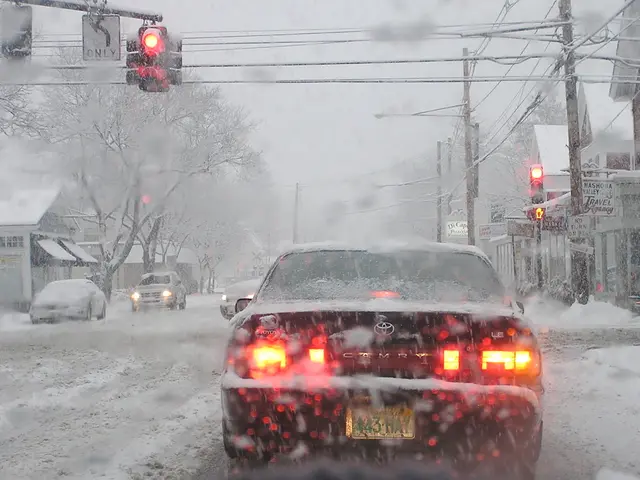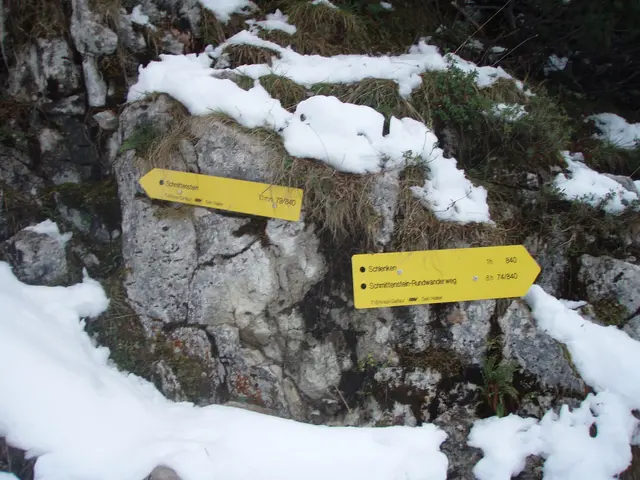Unfair Burden? Homeowners May foot the Bill for Denmark's Flood Prevention Measures
Homeowners in Denmark may face extra fees as part of a proposed flood protection scheme.
In response to Denmark's record-breaking wet years (2023 and 2024), politicians are taking action to prevent floods due to high groundwater levels, potentially leaving homeowners shouldering the financial burden.
The Flood Situation
Heavy rainfall and groundwater reaching new highs have caused significant flooding in Denmark, propelling a need for action.
Political Response
A parliamentary majority has set forth a plan to prevent water from entering homeowners' basements, protecting house foundations. However, it's homeowners who may bear the cost of the climate-proofing initiatives, as suggested by a press release from the Ministry of the Environment (released March 2024).
The Proposed Plan
This month, the ministry will introduce a bill aimed at helping homeowners dealing with water in their basements, as groundwater levels continue to rise. Homeowners and local mayors alike have reportedly been anticipating this bill.
Minister Magnus Heunicke's Take
"This is direct assistance for the hundreds of thousands of homeowners who suffer due to basement water, with groundwater levels rising continuously," remarks Environment Minister Magnus Heunicke, referring to the homeowners as "helpless."
Current regulations assign utility companies responsibility for water that ends up in sewers. However, with sewers struggling to manage heavy rainfall, political steps are being taken.
The Proposed Solution & Costs
The proposal will pave the way for billions in investments in climate adaptation over the coming decades. These initiatives, carried out by sewage companies, are estimated to cost 60 billion kroner over the next 75 years.
Homeowners in affected areas can anticipate an additional fee of approximately 40 kroner added to their water bills. Notably, the maintenance of sewerage systems is already covered through water bills, with the minister affirming that this is the same category.
Utility companies that provide drinking water and manage wastewater in Denmark are municipally-owned businesses.
Under the proposal, municipalities will identify areas within cities where climate protection measures are necessary due to high groundwater levels. The companies will then be obligated to install underground drainage pipes or similar measures to prevent home flooding.
A Look at Potential Funding
Denmark's climate adaptation efforts typically derive from government initiatives rather than direct costs to homeowners. Recent developments suggest public funds cover the costs of major initiatives like the first phase of Denmark’s Climate Adaptation Plan, which received EUR 161 million from the Green Fund and additional EUR 270 million for biodiversity, marine protection, drinking water safety, and climate adaptation[2]. District heating expansion is also prioritized, aimed at reducing household energy costs[2].
The Danish government's Loss and Damage Support mainly targets vulnerable nations, although its domestic adaptation strategy prioritizes public financing to shield citizens from climate-related costs as well.
For more specific homeowner costs, localized municipal plans or project-specific funding arrangements would need to be consulted.
- The escalating issue of climate-change, as exemplified by Denmark's record-breaking wet years in 2023 and 2024, has prompted a significant shift in environmental-science and weather-forecasting.
- In the realm of science and art, there's a growing need to address the news of climate-change, fossil fuels, and environmental crises, to foster a more climate-resilient future.
- The space sector, meanwhile, continues to play a crucial role in predicting and understanding weather patterns, which are becoming increasingly unpredictable due to climate-change.
- To redirect funding towards addressing these environmental challenges, there's a call to renew government initiatives and prioritize investments in climate adaption, as done in the first phase of Denmark's Climate Adaptation Plan.
- The renewed focus on climate-change calls for a significant shift in our approach to environmental-science, potentially redirecting funds from other areas such as space exploration, to ensure a sustainable future for all.
- In light of the potential financial burden on homeowners due to climate-change, there's a compelling case for increased research and innovation in fields like weather-forecasting and environmental-science, to help mitigate the impacts of floods and other climate-related events.








